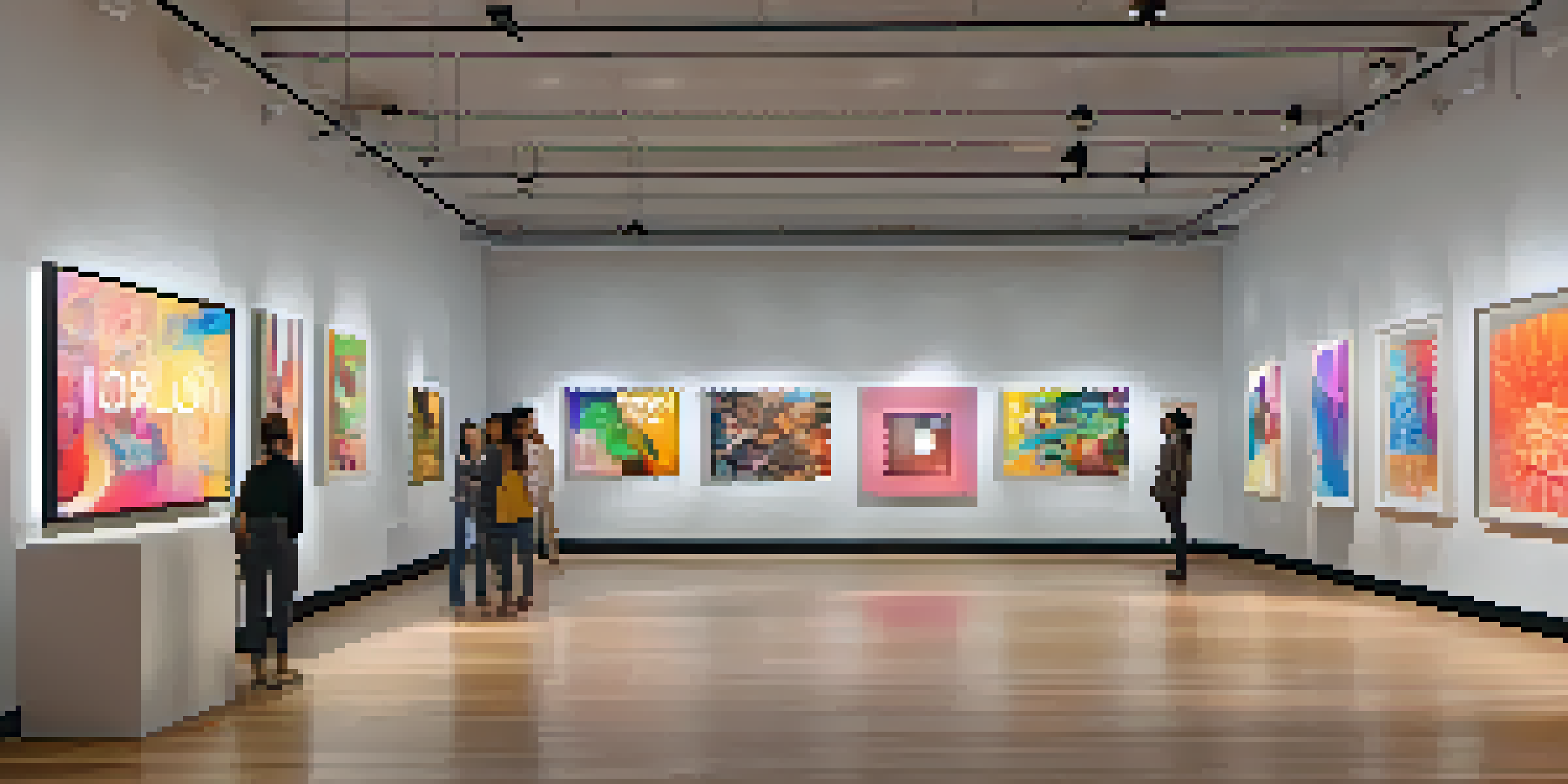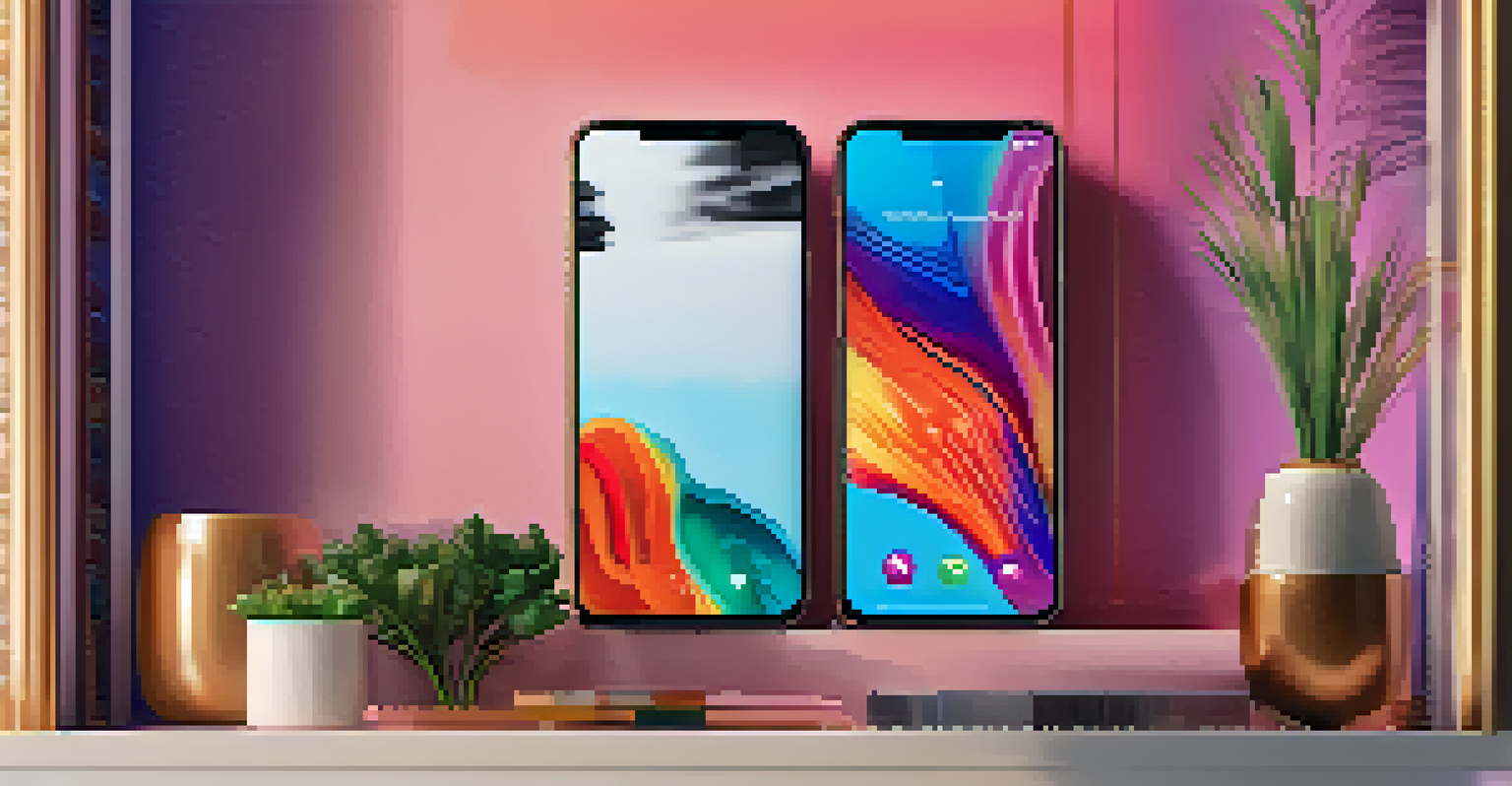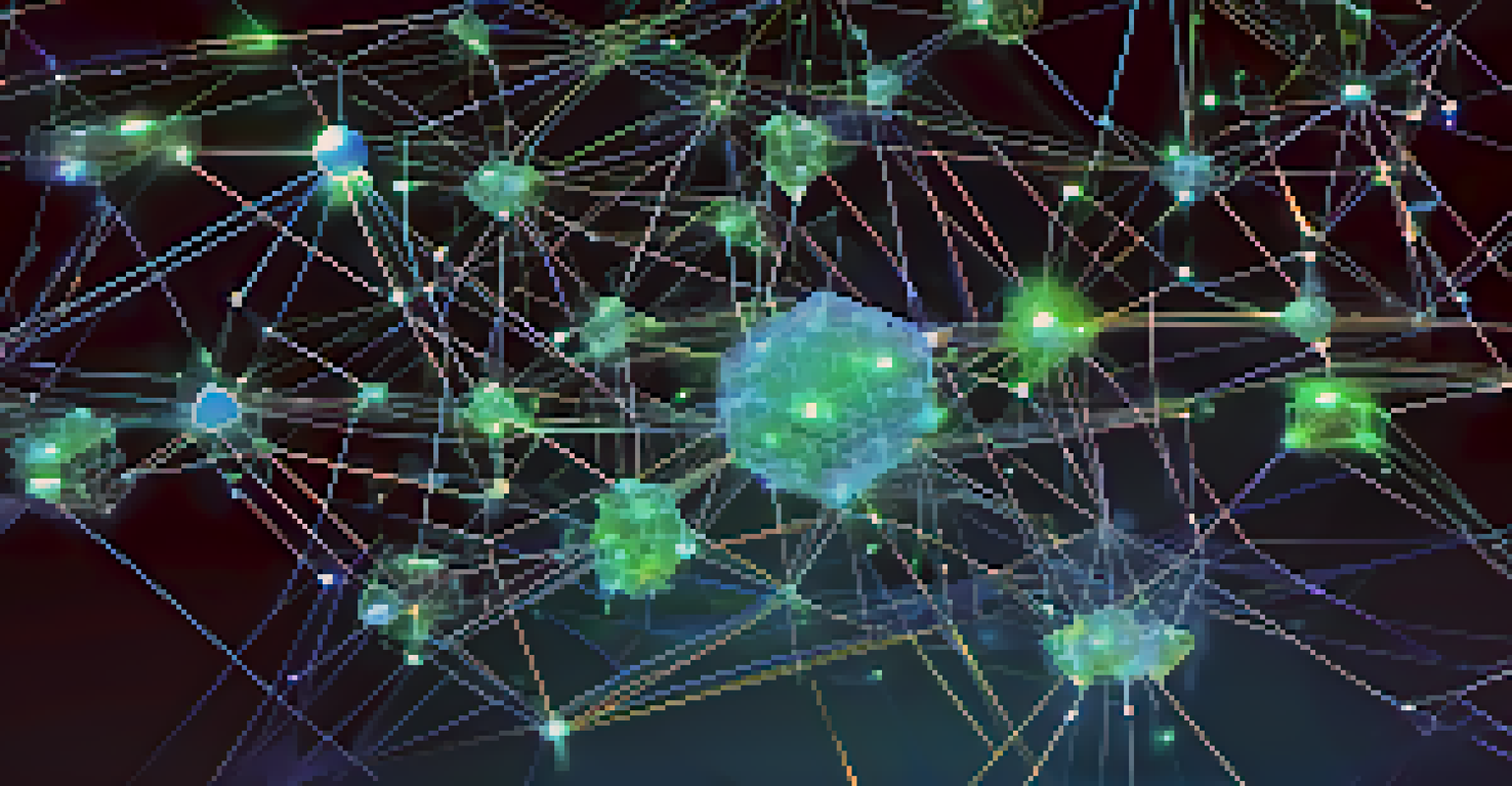Understanding NFTs: A Guide to Digital Asset Resilience

What Are NFTs and Why Do They Matter?
NFTs, or non-fungible tokens, are unique digital assets that represent ownership of a specific item or piece of content on the blockchain. Unlike cryptocurrencies like Bitcoin, which are interchangeable, NFTs are one-of-a-kind and can't be replicated. This uniqueness is what gives NFTs their value, as collectors and creators alike are drawn to owning something that no one else can have.
NFTs are a new way to establish ownership and provenance in the digital realm, giving creators and collectors a unique form of expression and investment.
The rise of NFTs has transformed how we think about digital ownership. In a world where digital files can be copied endlessly, NFTs provide a way to claim authenticity and provenance. This shift is significant not just for artists and musicians but also for brands and businesses looking to engage with their audiences in innovative ways.
As we navigate this digital landscape, understanding NFTs becomes essential. They open up new avenues for creativity and investment, but they also come with challenges that require careful consideration, making it crucial to grasp their implications.
How NFTs Work: The Technology Behind Them
At the core of NFTs is blockchain technology, which functions as a decentralized ledger that records transactions across multiple computers. This means that once an NFT is created, its ownership and transaction history are securely documented and cannot be altered. Ethereum is the most commonly used blockchain for NFTs, but others like Binance Smart Chain and Flow are gaining traction.

When someone buys an NFT, they receive a digital certificate of ownership stored on the blockchain. This certificate includes important details, such as the creator's information and the NFT's unique attributes. The ability to verify ownership without a central authority is a game changer, fostering trust in the digital art and collectibles market.
NFTs Redefine Digital Ownership
NFTs provide a way to claim authenticity and ownership of digital assets, transforming how we engage with art and content.
Understanding the technical side of NFTs can seem daunting, but it's crucial for navigating this space. The more you know about the technology, the better equipped you'll be to make informed decisions about buying, selling, or creating NFTs.
The Role of Smart Contracts in NFTs
Smart contracts are self-executing contracts with the terms of the agreement directly written into code. In the context of NFTs, these contracts automate processes like royalties for creators, ensuring they receive a percentage of future sales whenever their art is resold. This feature is revolutionary, as it allows artists to continue profiting from their work long after the initial sale.
The rise of NFTs is not just about making money; it's about revolutionizing the way we think about art, ownership, and community.
By leveraging smart contracts, NFT creators can set their own rules regarding ownership, transfer, and resale. This level of control empowers artists and gives them a stake in the ongoing value of their creations. It's an excellent example of how technology can reshape traditional business models in the art world.
However, it's important to note that smart contracts are not infallible. They can have bugs or vulnerabilities, so understanding how they work is essential for anyone looking to dive into NFTs, whether as a buyer or a creator.
The Value of NFTs: Speculation vs. Utility
The value of NFTs can be a complex topic, often oscillating between speculation and inherent utility. Many people are drawn to the NFT market for the potential of quick profits, purchasing digital assets with hopes of selling them at a higher price. This speculative aspect has led to some outrageous sales prices but also a fair share of skepticism about the sustainability of such a model.
On the other hand, NFTs also offer genuine utility beyond mere speculation. For instance, they can provide access to exclusive content, events, or experiences, creating tangible benefits for the owner. This duality in value—speculative and practical—makes NFTs a unique investment opportunity, attracting diverse participants in the market.
Smart Contracts Empower Creators
Smart contracts automate royalty payments for artists, allowing them to benefit from resale profits and maintain control over their work.
Understanding this balance is key to making informed decisions in the NFT space. Whether you're an investor, a creator, or just curious, grasping the nuances of value can help you navigate the potential risks and rewards.
NFTs and the Future of Digital Art
The emergence of NFTs has sparked a revolution in the digital art world. Artists are now able to monetize their work in ways that were previously unimaginable, shifting the power dynamics in an industry once dominated by galleries and auction houses. This democratization allows for greater diversity in artistic expression and opens the door for artists from all backgrounds to showcase their talent.
Moreover, NFTs provide artists with a direct connection to their audience. Fans can support their favorite creators by purchasing NFTs, fostering a sense of community and engagement that traditional art markets often lack. This shift is not just beneficial for artists; it also enriches the experience for collectors and fans alike.
As we look to the future, NFTs are likely to continue shaping the landscape of digital art, pushing boundaries and inspiring new forms of creativity. Understanding this evolution will be vital for anyone interested in the intersection of technology and art.
Challenges and Criticisms of NFTs
Despite their potential, NFTs are not without challenges and criticisms. One major concern is their environmental impact, as the blockchain technology that underpins them can consume significant amounts of energy. This has raised eyebrows among eco-conscious consumers and artists, sparking debates about sustainability within the NFT space.
Additionally, the market is rife with fraud and copyright issues. Some individuals have sold NFTs of artworks they do not own, leading to legal disputes and a general atmosphere of distrust. The lack of regulation further complicates matters, making it crucial for buyers to conduct thorough research before making a purchase.
NFT Market Balances Speculation and Utility
While some view NFTs as speculative investments, they also offer real utility, such as access to exclusive content and experiences.
These challenges highlight the need for ongoing dialogue and improvement within the NFT ecosystem. As the market matures, addressing these issues will be essential for building a sustainable and trustworthy environment for creators and collectors alike.
Getting Started with NFTs: A Practical Guide
If you're eager to dive into the world of NFTs, the first step is to set up a digital wallet. This wallet will store your cryptocurrencies and NFTs, allowing you to buy, sell, or trade them seamlessly. Popular options include MetaMask and Coinbase Wallet, both of which are user-friendly and widely accepted across various NFT marketplaces.
Once your wallet is set up, you'll need to purchase some cryptocurrency, typically Ethereum, to begin trading. Most NFT platforms operate on Ethereum, so having some in your wallet will enable you to participate in auctions and purchases. Make sure to familiarize yourself with the fees associated with transactions, as they can vary significantly.

Finally, explore different NFT marketplaces like OpenSea, Rarible, or Foundation to find and buy NFTs that resonate with you. Each platform has its unique features and community, so take your time to discover where you feel most comfortable. With the right preparation and research, you'll be well on your way to becoming a part of the exciting world of NFTs.